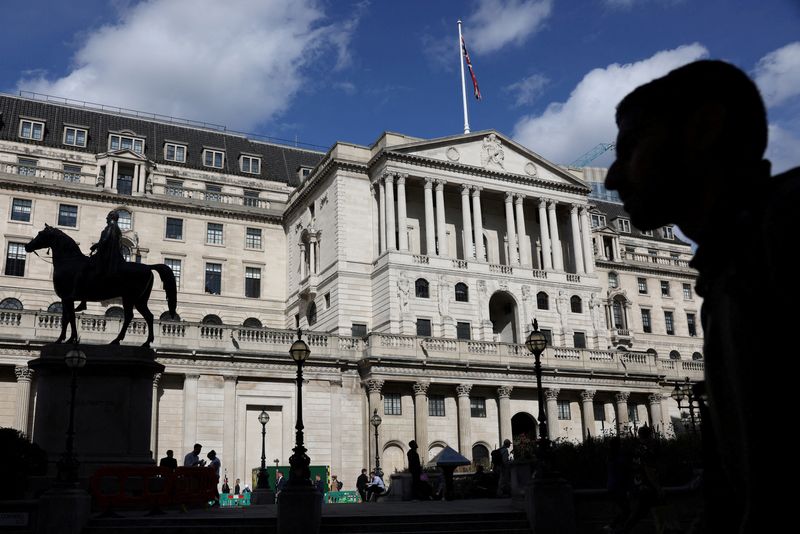By Stefania Spezzati and Huw Jones
LONDON (Reuters) - Britain's top financial regulator has asked banks active in the so-called private credit market for details of their exposure to an area which it has identified as a top systemic danger, people with knowledge of the matter told Reuters.
The global market for private credit, which largely involves leveraged loans made to indebted companies, grew to nearly $1.5 trillion in 2022, a jump of more than 40% from 2020, London-based data firm Preqin estimated.
The Bank of England's Prudential (LON:PRU) Regulation Authority (PRA)has identified risks in private credit and leveraged lending and has given banks including JP Morgan, Goldman Sachs (NYSE:GS) and Bank of America (NYSE:BAC) until the end of 2023 to respond, two people said.
The banking regulator's request, which has not been previously reported, includes sharing details of individual clients, the people said.
Banks with wholesale operations and private equity business have been expanding in private credit in a search for returns.
But the lack of transparency in these pockets of the financial system means the size and risks might not be entirely visible in banks' balance sheets, the person added.
The BOE said in its financial stability report this week, that riskier corporate borrowing, such as private credit and leveraged lending appears "particularly vulnerable".
"The opacity of private credit markets makes risks in the sector challenging to monitor in the UK and globally," it added. A PRA spokesperson declined to comment. JP Morgan, Goldman Sachs and BofA also declined to comment.
BUBBLE?
Private credit firms tend to arrange loans to fledgling companies on a floating-rate basis, which means rising interest rates threaten their ability to repay, prompting regulators worldwide to voice concerns over this opaque corner of finance.
A private credit shock could cause a liquidity squeeze, a possibility regulators are particularly sensitive to after this year's deposit runs at Credit Suisse (SIX:CSGN) and Silicon Valley Bank, one of the people told Reuters on condition of anonymity.
Britain's banking regulators have been meeting lenders' top executives to discuss the issue this year and aim to map out the banking exposure, the person said.
Banks often lend to portfolio companies, but also "to fund investors, underlying funds, asset managers, and everyone in between," BoE senior regulator Nathanaël Benjamin said in July, highlighting the complex web of connections in the market.
Bankers have also warned about the risks.
Colm Kelleher, chairman of Swiss bank UBS, said in November there was clearly "an asset bubble in private credit".
Britain's Financial Conduct Authority (FCA), is conducting its own review, the people said, focusing on the leveraged-loan market, including collateralised loan obligations (CLOs), risky loans that are bundled together and sold in tranches.
At a roundtable in London at the end of November, the market regulator invited the chairs of banks with major wholesale operations including JP Morgan and Goldman Sachs to discuss priorities for next year, they added.

Banking exposure to private credit markets and private equities was identified as a concern, one of the people who attended the meeting told Reuters.
The FCA declined to comment.
